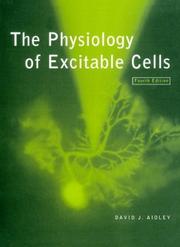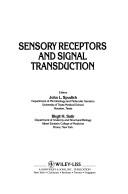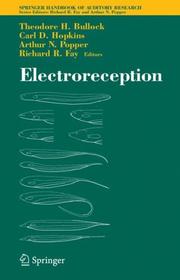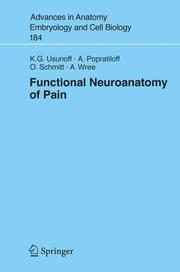
ISBN: 0521574218 9780521574211 9781139171182 9780521574150 Year: 1998 Publisher: Cambridge Cambridge University Press
Abstract | Keywords | Export | Availability | Bookmark
 Loading...
Loading...Choose an application
- Reference Manager
- EndNote
- RefWorks (Direct export to RefWorks)
The fourth edition of this highly successful text has been extensively revised and restructured to take account of the many recent advances in the subject and bring it right up to date. The classic observations of recent years can now be interpreted with the powerful new techniques of molecular biology. Consequently there is much new material throughout the book, including many new illustrations and extensive references to recent work. Its essential philosophy remains the same, though: fundamental concepts are clearly explained, and key experiments are examined in some detail. This textbook will be used by students of physiology, neuroscience, cell biology and biophysics. Specializing undergraduates and graduates as well as lecturers and researchers will find the text thorough and clearly written.
Animal psychology and neurophysiology --- Electrophysiology. --- Excitable membranes. --- Muscle cells. --- Neural transmission. --- Neurons. --- Neurophysiology. --- Sensory receptors. --- Neurophysiology --- Neurons --- Muscle cells --- Sensory receptors --- Excitable membranes --- Electrophysiology --- Neural transmission --- Cell Physiological Phenomena
Book
Year: 2014 Publisher: Frontiers Media SA
Abstract | Keywords | Export | Availability | Bookmark
 Loading...
Loading...Choose an application
- Reference Manager
- EndNote
- RefWorks (Direct export to RefWorks)
In recent years a significant body of research literature has accumulated on olfaction along several levels of investigation detailed in this Research Topic, ranging from molecular processes to the neural and cognitive processing of olfactory information, as well as to the influence of odors on our everyday lives. A useful resource for colleagues scholars and professionals dealing with the study of chemical senses this work focuses on the applied aspects of olfaction including: Olfaction in everyday life (e.g., olfactory driven attitudes, behaviors and emotions; cognitions and behavior around human body odors; olfaction and consumer behavior; olfactory cognition and emotion in pregnancy; odors in the emergence and maintenance of disgust; air pollution studies; detecting malingering by means of odors; electronic noses and food analyses), Olfactory expertise (e.g., wine expertise in sommeliers and oenologists; odors and flavors in culinary environment; olfactory cognition in food science and in hedonics; skills of perfumers’ noses) and Olfaction in health and disease (e.g., olfaction in multiple chemical sensitivity; olfaction in post traumatic stress disorders; olfaction and sick building syndrome; olfaction and the motion sickness paradigm; olfactory loss and coping strategies; odors and pain relief; odors in the management of coma, neurodegenerative and psychiatric diseases).
Smell. --- Smell --- Chemoreceptors. --- Cognition. --- Sensory receptors. --- Physiological aspects. --- Psychological aspects. --- Research. --- Disease --- Health --- Everyday Life --- Cognition --- Applied olfaction --- Expertise
Book
Year: 2014 Publisher: Frontiers Media SA
Abstract | Keywords | Export | Availability | Bookmark
 Loading...
Loading...Choose an application
- Reference Manager
- EndNote
- RefWorks (Direct export to RefWorks)
In recent years a significant body of research literature has accumulated on olfaction along several levels of investigation detailed in this Research Topic, ranging from molecular processes to the neural and cognitive processing of olfactory information, as well as to the influence of odors on our everyday lives. A useful resource for colleagues scholars and professionals dealing with the study of chemical senses this work focuses on the applied aspects of olfaction including: Olfaction in everyday life (e.g., olfactory driven attitudes, behaviors and emotions; cognitions and behavior around human body odors; olfaction and consumer behavior; olfactory cognition and emotion in pregnancy; odors in the emergence and maintenance of disgust; air pollution studies; detecting malingering by means of odors; electronic noses and food analyses), Olfactory expertise (e.g., wine expertise in sommeliers and oenologists; odors and flavors in culinary environment; olfactory cognition in food science and in hedonics; skills of perfumers’ noses) and Olfaction in health and disease (e.g., olfaction in multiple chemical sensitivity; olfaction in post traumatic stress disorders; olfaction and sick building syndrome; olfaction and the motion sickness paradigm; olfactory loss and coping strategies; odors and pain relief; odors in the management of coma, neurodegenerative and psychiatric diseases).
Smell. --- Smell --- Chemoreceptors. --- Cognition. --- Sensory receptors. --- Physiological aspects. --- Psychological aspects. --- Research. --- Disease --- Health --- Everyday Life --- Cognition --- Applied olfaction --- Expertise
Book
Year: 2014 Publisher: Frontiers Media SA
Abstract | Keywords | Export | Availability | Bookmark
 Loading...
Loading...Choose an application
- Reference Manager
- EndNote
- RefWorks (Direct export to RefWorks)
In recent years a significant body of research literature has accumulated on olfaction along several levels of investigation detailed in this Research Topic, ranging from molecular processes to the neural and cognitive processing of olfactory information, as well as to the influence of odors on our everyday lives. A useful resource for colleagues scholars and professionals dealing with the study of chemical senses this work focuses on the applied aspects of olfaction including: Olfaction in everyday life (e.g., olfactory driven attitudes, behaviors and emotions; cognitions and behavior around human body odors; olfaction and consumer behavior; olfactory cognition and emotion in pregnancy; odors in the emergence and maintenance of disgust; air pollution studies; detecting malingering by means of odors; electronic noses and food analyses), Olfactory expertise (e.g., wine expertise in sommeliers and oenologists; odors and flavors in culinary environment; olfactory cognition in food science and in hedonics; skills of perfumers’ noses) and Olfaction in health and disease (e.g., olfaction in multiple chemical sensitivity; olfaction in post traumatic stress disorders; olfaction and sick building syndrome; olfaction and the motion sickness paradigm; olfactory loss and coping strategies; odors and pain relief; odors in the management of coma, neurodegenerative and psychiatric diseases).
Smell. --- Smell --- Chemoreceptors. --- Cognition. --- Sensory receptors. --- Disease --- Health --- Everyday Life --- Cognition --- Applied olfaction --- Expertise --- Physiological aspects. --- Psychological aspects. --- Research.
Book
ISBN: 0128017864 0128016949 9780128017869 9780128016947 Year: 2016 Publisher: Boston, MA : Elsevier,
Abstract | Keywords | Export | Availability | Bookmark
 Loading...
Loading...Choose an application
- Reference Manager
- EndNote
- RefWorks (Direct export to RefWorks)
Neuroscience --- Human Anatomy & Physiology --- Health & Biological Sciences --- Chemoreceptors. --- Chemical senses. --- Neurobiology. --- Neurosciences --- Chemoreception --- Senses and sensation --- Chemoreceptors --- Sensory receptors --- Chemical senses --- Chemoreceptor Cells --- Signal Transduction --- physiology.
Book
ISBN: 9783540790891 Year: 2009 Publisher: New York : Springer,
Abstract | Keywords | Export | Availability | Bookmark
 Loading...
Loading...Choose an application
- Reference Manager
- EndNote
- RefWorks (Direct export to RefWorks)
Nervensystem. --- Nerves, Peripheral --- Neuralgie. --- Peripheral Nerves --- Peripheral Nervous System Diseases --- Schmerztherapie. --- Senses and sensation. --- Sensorik (Neurophysiologie). --- Sensory Receptor Cells --- Sensory receptors. --- Diseases. --- physiopathology. --- drug therapy. --- physiology.

ISBN: 0471561053 9780471561057 Year: 1991 Volume: 10 Publisher: New York (N.Y.) : Wiley-Liss,
Abstract | Keywords | Export | Availability | Bookmark
 Loading...
Loading...Choose an application
- Reference Manager
- EndNote
- RefWorks (Direct export to RefWorks)
Cellular signal transduction --- Sensory receptors --- Sensory Receptor Cell --- Cell Communication --- Signal Transduction --- physiology --- Cellular signal transduction. --- Sensory receptors. --- Receptors, Sensory --- physiology. --- Sensory Receptor Cells --- 576.54 --- Cellular information transduction --- Information transduction, Cellular --- Signal transduction, Cellular --- Bioenergetics --- Cellular control mechanisms --- Information theory in biology --- Neural receptors --- Cell interaction. Communication --- 576.54 Cell interaction. Communication --- Sensory Receptor Cell - physiology --- Cell Communication - physiology --- Signal Transduction - physiology

ISBN: 1280716096 9786610716098 0387282750 0387231927 Year: 2005 Publisher: New York : Springer,
Abstract | Keywords | Export | Availability | Bookmark
 Loading...
Loading...Choose an application
- Reference Manager
- EndNote
- RefWorks (Direct export to RefWorks)
Electroreception has become one of the most revealing areas in the study of the neural basis of behavior, and neurobiologists recognize it as a model sensory system for experimental study. Through studies of electroreception, researchers have gained extensive knowledge about a complete sensory system, from molecular biology to computation, communication and behavior. The book Electroreception will examine the behavior, structure and function of the electrosensory systems of fish and other vertebrates. As a comprehensive volume on the subject, the book will serve as both an introduction to the study of electroreception and a reference and review volume for researchers in related fields. About the Editors: Theodore H. Bullock is Professor of Neurosciences at the Scripps Research Institute, University of California, San Diego. Carl Hopkins is Professor in the Department of Neurobiology and Behavior at Cornell University. Richard R. Fay is Director of the Parmly Hearing Institute and Professor of Psychology at Loyola University in Chicago. Arthur N. Popper is Professor in the Department of Biology and Co-Director of the Center for Comparative and Evolutionary Biology of Hearing at the University of Maryland, College Park.
Electroreceptors. --- Sensory receptors --- Neurobiology. --- Animal behavior. --- Animal physiology. --- Vertebrates. --- Behavioral Sciences. --- Animal Physiology. --- Vertebrata --- Chordata --- Animal physiology --- Animals --- Biology --- Anatomy --- Animals, Habits and behavior of --- Behavior, Animal --- Ethology --- Animal psychology --- Zoology --- Ethologists --- Psychology, Comparative --- Neurosciences --- Physiology --- Behavior --- Behavioral sciences.

ISBN: 1280462531 9786610462537 3540281665 3540281622 Year: 2006 Publisher: Berlin : Springer,
Abstract | Keywords | Export | Availability | Bookmark
 Loading...
Loading...Choose an application
- Reference Manager
- EndNote
- RefWorks (Direct export to RefWorks)
Pain is an unpleasant but very important biological signal for danger. Nociception is necessary for survival and maintaining the integrity of the organism in a potentially hostile environment. Pain is both a sensory experience and a perceptual metaphor for damage and it is activated by noxious stimuli that act on a complex pain sensory apparatus. However, chronic pain having no more a protective role can become a ruining disease itself, termed "neuropathic pain".
Pain. --- Nociceptors. --- Neuralgia. --- Pain receptors --- Sensory receptors --- Aches --- Emotions --- Pleasure --- Senses and sensation --- Symptoms --- Analgesia --- Suffering --- Nerves, Peripheral --- Pain --- Diseases --- Neurosciences. --- Neural sciences --- Neurological sciences --- Neuroscience --- Medical sciences --- Nervous system
Book
ISBN: 9782759206322 2759206327 Year: 2010 Publisher: Versailles: Quæ,
Abstract | Keywords | Export | Availability | Bookmark
 Loading...
Loading...Choose an application
- Reference Manager
- EndNote
- RefWorks (Direct export to RefWorks)
Géographie humaine --- Perception de l'architecture --- Perception de l'espace --- Sens --- Sociologie urbaine --- Paris --- urbanisme --- urbanism --- Ville --- Towns --- Geography --- Urbanisation --- Urbanization --- Récepteurs sensoriels --- Sensory receptors --- Physiologie sensorielle --- Senses --- Odeur --- Smell --- Olfaction --- Bien-être social --- social welfare --- France --- Paris (France)

 Search
Search Feedback
Feedback About UniCat
About UniCat  Help
Help News
News